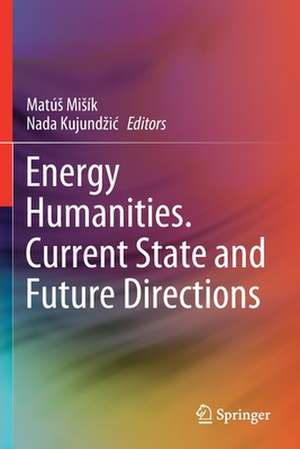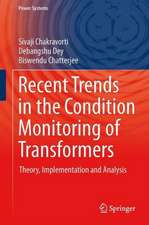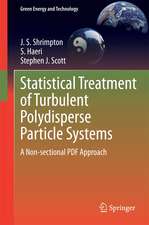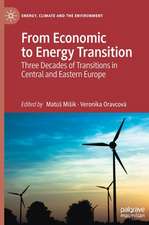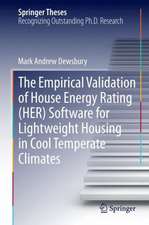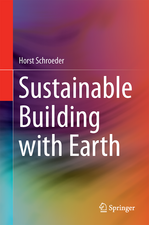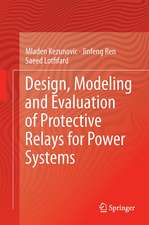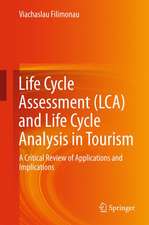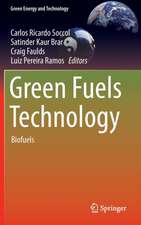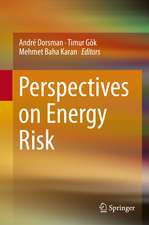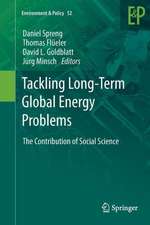Energy Humanities. Current State and Future Directions
Editat de Matúš Mišík, Nada Kujundžićen Limba Engleză Paperback – 3 noi 2021
This edited book explicitly deals with the energy humanities, summarising existing knowledge in the area and outlining possible future directions for the nascent field. Assuming a variety of disciplinary stances and using a plethora of methodologies to address a number of pressing energy-related issues, the individual contributions showcase the crucial importance of including the humanities and social sciences into the current discussion on energy. Furthermore, they illustrate one of the central claims of the energy humanities, namely, that energy permeates all aspects of our contemporary modes of existence, and is inextricably linked with historical, political, social, ideological, and cultural issues, relationships, and practices.
Energy Humanities and Energy Transition presents a variety of theories, methods, topics, and disciplinary angles, meaning it will be of interest to a wide audience, from practitioners and policy makers, to students and researchers working across the humanities and social sciences. The thematically oriented structure, distinct focus of each individual chapter, and the comprehensive introduction and conclusion that contextualize the contributions within the wider framework of energy transition, make this edited book accessible to readers from many different fields and suitable for various university programs.
| Toate formatele și edițiile | Preț | Express |
|---|---|---|
| Paperback (1) | 723.56 lei 6-8 săpt. | |
| Springer International Publishing – 3 noi 2021 | 723.56 lei 6-8 săpt. | |
| Hardback (1) | 727.97 lei 3-5 săpt. | |
| Springer International Publishing – 3 noi 2020 | 727.97 lei 3-5 săpt. |
Preț: 723.56 lei
Preț vechi: 882.39 lei
-18% Nou
Puncte Express: 1085
Preț estimativ în valută:
138.50€ • 150.49$ • 116.41£
138.50€ • 150.49$ • 116.41£
Carte tipărită la comandă
Livrare economică 21 aprilie-05 mai
Preluare comenzi: 021 569.72.76
Specificații
ISBN-13: 9783030574826
ISBN-10: 3030574822
Ilustrații: XIII, 213 p. 4 illus., 2 illus. in color.
Dimensiuni: 155 x 235 mm
Greutate: 0.33 kg
Ediția:1st ed. 2021
Editura: Springer International Publishing
Colecția Springer
Locul publicării:Cham, Switzerland
ISBN-10: 3030574822
Ilustrații: XIII, 213 p. 4 illus., 2 illus. in color.
Dimensiuni: 155 x 235 mm
Greutate: 0.33 kg
Ediția:1st ed. 2021
Editura: Springer International Publishing
Colecția Springer
Locul publicării:Cham, Switzerland
Cuprins
Energy Humanities: Current State and Future Directions.- Fats and Spirits: The Energetic History of the Humanities.- On the Energy Humanities, or, Towards a Critical Theory of Energy.- Energy Humanities and Energy Transition: A Reappraisal.- “Energy Liberation”: The Geopolitics of Energy Security in Eastern Europe.- Energy Policy Transition in Germany in the Context of Energy Humanities.- Enhancing Government Action, Accountability, and Transparency for Effective Climate Protection and a Renewable Energy Transition.- Natural Gasʼ Changing Discourse in European Decarbonisation.- Histories of the Present: Tar Sands Photography and Colonial Cultural Production.- Performing Petro-technology in the Niger Delta.- Reframing “Nuclear Energy” within US Nuclear Fiction: The Post-Chernobyl Perspective.- Unknown Times of Nuclear Waste: ‘Into Eternity’ and a Crisis of Communication.- Energy Humanities and Energy Transition.
Notă biografică
Matúš Mišík is Assistant Professor at the Department of Political Science at Comenius University in Bratislava. His main research interests include energy security in the EU and the role of perception within EU decision-making mechanisms. He is the author of External Energy Security in the European Union (Routledge, 2019) and has published articles in Nature Energy, Energy, Energy Policy, Geopolitics, Journal of Popular Culture, Comparative European Politics, Asia Europe Journal, etc. He has undertaken research trips to Norway (2006), Kazakhstan (2009), Finland (2009), Great Britain (2011), Austria (2012), and Canada (2015-2016, 2018).
Nada Kujundžićʼs research interests include fairy tales and their adaptations, short prose narratives, popular culture, and childrenʼs literature. She publishes articles and book reviews in Croatian and international journals.
Textul de pe ultima copertă
This edited book explicitly deals with the energy humanities, summarising existing knowledge in the area and outlining possible future directions for the nascent field. Assuming a variety of disciplinary stances and using a plethora of methodologies to address a number of pressing energy-related issues, the individual contributions showcase the crucial importance of including the humanities and social sciences into the current discussion on energy. Furthermore, they illustrate one of the central claims of the energy humanities, namely, that energy permeates all aspects of our contemporary modes of existence, and is inextricably linked with historical, political, social, ideological, and cultural issues, relationships, and practices.
Through numerous case studies, Energy Humanities and Energy Transition looks to the past, present, and future in search of examples of best practices and possible models for pathways to a successful energy transition and life ‘after oilʼ. While much of existing research on energy humanities has been criticised for its excessive focus on oil, this book considers a wide range of energy resources, including nuclear energy, renewables, and natural gas. Furthermore, it brings to the forefront under-researched topics such as the colonial legacy inscribed in energy infrastructure and the energy history of the humanities. The contributions in this volume explore not only how the perspectives and expertise of the humanities and social sciences can alter the discourse on energy transition, and our way of thinking about possible solutions and future scenarios, but also how their new focus on energy affects the disciplines themselves.
Energy Humanities and Energy Transition presents a variety of theories, methods, topics, and disciplinary angles, meaning it will be of interest to a wide audience, from practitioners and policy makers, to students and researchers working across the humanities andsocial sciences. The thematically oriented structure, distinct focus of each individual chapter, and the comprehensive introduction and conclusion that contextualize the contributions within the wider framework of energy transition, make this edited book accessible to readers from many different fields and suitable for various university programs.
Caracteristici
Offers a wide and inclusive approach covering multiple energy sources Critically examines existing writings on energy humanities, and proposes directions for future research Original contributions utilize different theoretical and methodological tools to address a variety of energy-related topics
